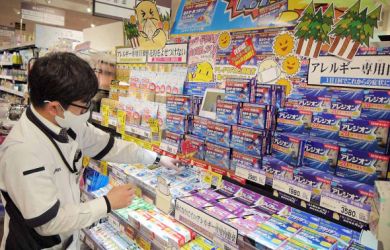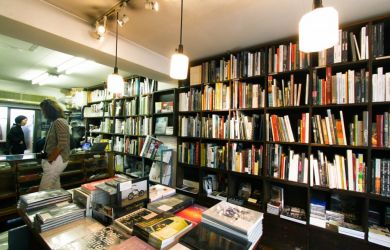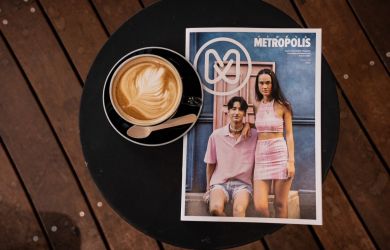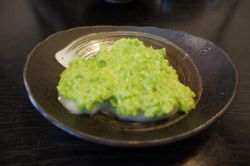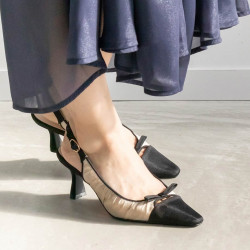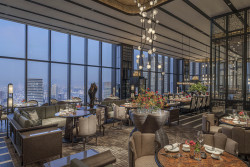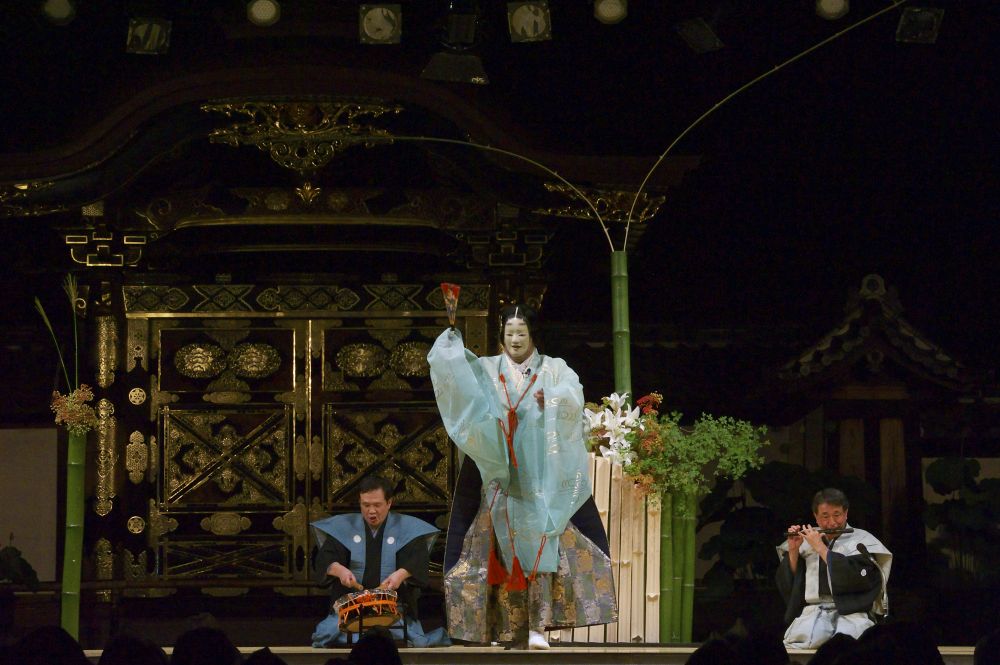
October 31, 2023
Based in Japan: Madeleine Jalil-Umewaka On Perseverance
From war-torn Lebanon to Japan
What does one of the oldest regions in the world have in common with the oldest theatrical art in the world? If you answered Madeleine Jalil-Umewaka, you’d be right. Born in ancient Lebanon, a young Madeleine fled her homeland during its civil war, only to find an extraordinary life as the wife of Naohiko Umewaka, veteran actor in one of Japan’s most prestigious Noh theatre families. Her autobiography, in both Japanese and French editions, tells a story of resilience in the face of drastic change. While promoting her book in France, Madeleine generously shared some of her time with Metropolis, offering readers a poignant message of perseverance and a respect for other viewpoints that has made her an inspiring bridge between cultures.

You’ve been in Japan now for a long time, since the 1970s I believe. What are your thoughts on this?
I came to Japan to escape the Lebanese civil war. It was not my choice but my country was in turmoil. Leaving my family and my home, I felt that my life was turned on its head and hoped that the war would end in a few months. Unfortunately, it lasted for fifteen years and although I still identify as being Lebanese, I ended up settling in Japan and even became a Japanese citizen.
Why did you settle in Japan? After all, there are many Arabic, French and English-speaking nations you could have migrated to.
My eldest sister met her Japanese husband in Lebanon before the war started. When the fighting began intensifying, she invited us to visit where I met my future husband Naohiko Umewaka at an international high school in Kobe. After completing university studies in computer science in the UK and US, I returned to Japan in 1981, continued studying at the graduate school at Osaka University and reunited with Naohiko. We married the following year and that began the next chapter of my life.
Your book The Noh Master’s Wife: A Journey From Lebanon to Japan explores your journey from Civil War in Lebanon to economic world power in Japan. The contrast couldn’t be more striking. What’s the key point you’d like readers to get from your story?
Well, there are a few things there. First, I want readers to understand a little of how it feels to be uprooted from your home. War is not pleasant and its effects have obviously colored my life in an important way. I also want to share some of my experiences of being the only non-Japanese to be part of an ancient Noh theatre family. Perhaps most importantly, I’d like readers to know that it is possible to successfully navigate different cultures and raise a family to be global citizens.
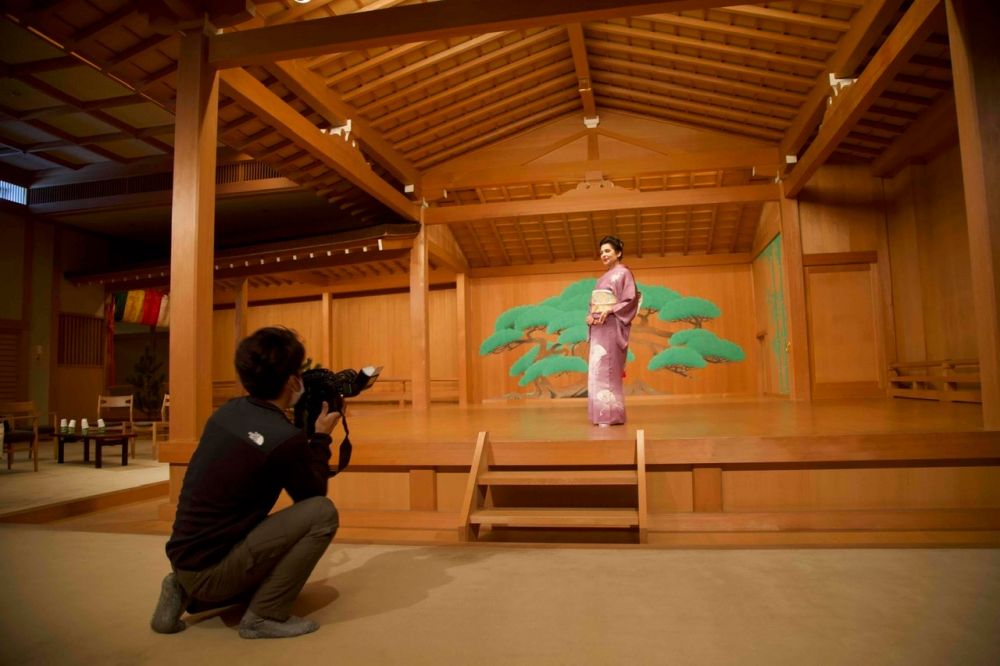
It’s not everyday one marries into a traditional Noh theatre family… What can you say about your relationship with Noh?
I was seventeen when I first discovered Noh but it wasn’t the costumes and masks that attracted me. No, it was the solemn atmosphere, the contrast between the actors’ poised gestures and the barely contained energy of the music. It was nothing like I had ever experienced. Maybe it brought me comfort since I was still suffering from the war or maybe it was waking up to my father playing his operas that prepared me for Noh? I don’t know but for whatever reason, I was immediately entranced by Noh.
You once said that Lebanese and Japanese cultures appear very different but you’ve managed to live between the two. What tips do you have for navigating cultures?
Understand the differences of culture but keep within you the good aspects of each one, like a jigsaw puzzle. I love both the serenity that I feel in Japan and the love for spontaneity in Lebanon. Believe it or not, those two elements are not mutually exclusive.
Culture shock is common when moving overseas but you also navigated the challenges of being part of a culturally significant family. How did you do this?
I tried to understand the other perspective, the other forms of etiquette and rules. But the important thing was to not take the differences personally. By understanding that there are other ways of doing things, you learn to be more flexible about the norms you grew up within. From this I learnt to adapt and to focus on building a new home.
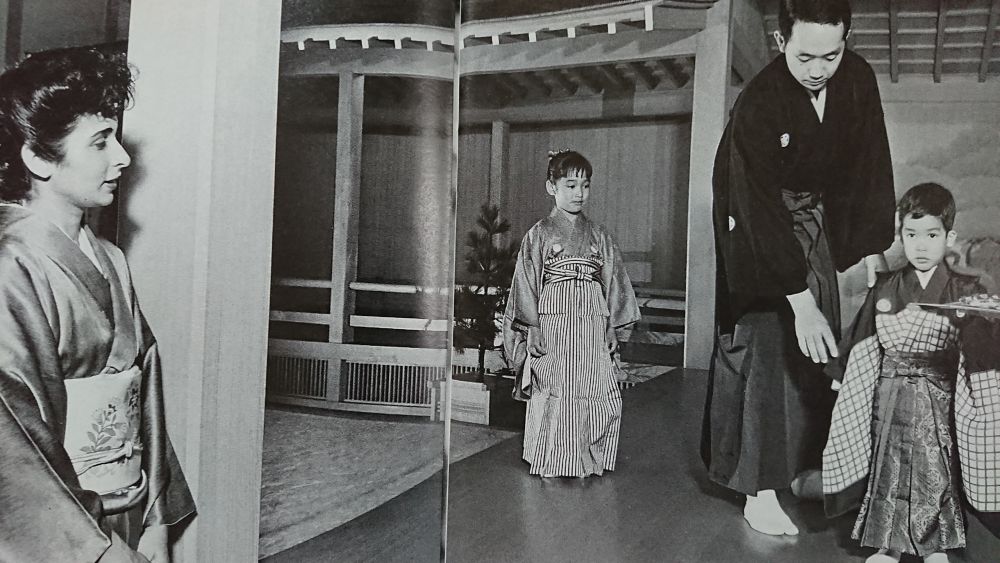
You’re in the unique position of being an authentic bridge between Japan and Lebanon. What can you say about that?
I try to promote understanding and appreciation for each country by emphasizing beauty and culture. The Japanese are not often familiar with Lebanon so I produced a documentary ‘Tomorrow We Will See‘ with my daughter Soraya about Lebanon’s political landscape seen through the eyes of ten Lebanese artists. In Lebanon, I produced contemporary Noh performances to introduce Noh’s aesthetics to my compatriots. Acting as a bridge encourages people to step out of their bubble, breaks down stereotypes and inspires curiosity which is an important step towards forging honest cultural connections.
What does the future hold for Madeleine Jalil-Umewaka?
I love Noh and will continue to produce contemporary performances so that people from all over the world can experience its aesthetics and appreciate what goes on backstage to bring the art to life. At the same time, I know that my own story has a certain resonance so I want to encourage people to find the resilience to adapt to a new country and find their own way.
What advice do you have for anyone who wishes to make Japan their home?
Never give up. Understanding a new culture that is entirely different from yours is challenging at first. But it eventually becomes a real privilege to be able to navigate multiple cultures and call Japan your home.

